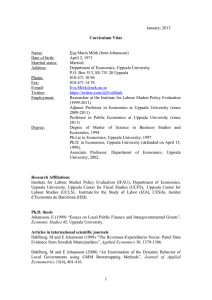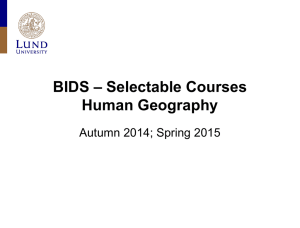Economic History - presentation
advertisement
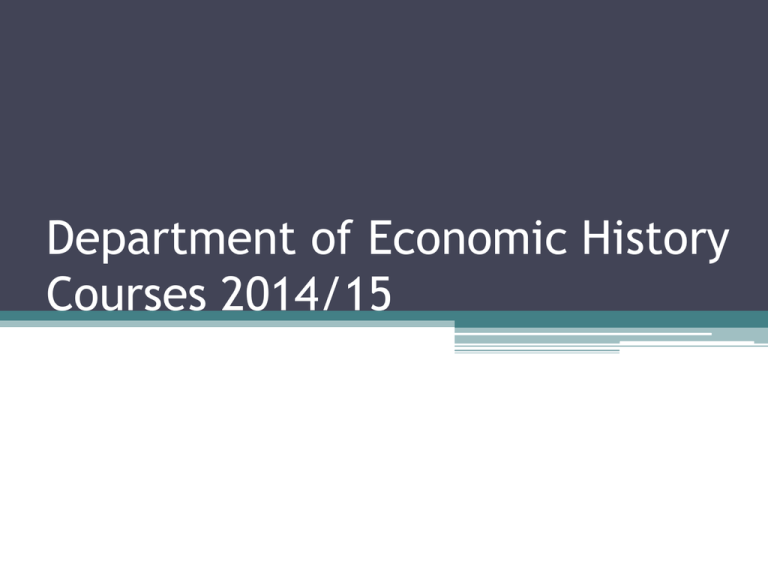
Department of Economic History Courses 2014/15 Economic History • Analysing long-term economic, social and political change • Focus on the processes of change, rather than historical events • Using an understanding of history to explain the present Department of Economic History • One out of six departments at the School of Economics and Management • Research focus • Strong relationship between research and teaching Research • Development economics • Economic growth and structural change • Agrarian history • Demography • Education and the labour market Labour market • Public sector ▫ ▫ ▫ ▫ Research Official reports Administration (government, NGOs, etc.) Teaching • Private sector ▫ Journalism and other investigative work ▫ Investigator Courses in English – autumn • EKHE40 Economic Development in Asia 15 cp • EKHE42 Emerging Asia 7,5 cp • EKHE43 Rising Giants 7,5 cp • EKHB21 Gr., Stag., and Ineq. In Africa 7,5 cp • SASE10 Swedish Economic Dev. 7,5 cp • SASE13 Population Aging and the Welfare State, 7,5 credit points Courses in Swedish - autumn • EKHA20 Grundkurs, 30,0 hp • EKHA22 Världens ekonomiska historia 15 hp • EKHA50 Arbetsmarknad och arbetsliv 15 hp • EKHA51 Den svenska modellen 7,5 hp • EKHA52 Dagsaktuella arbetsmarknadsfr. 7,5 hp • EKHA60 Tillväxt och miljö 15 hp • EKHA61 Miljöhistoria 7,5 hp • EKHA62 Hållbar utveckling 7,5 hp Courses in English - spring • EKHE30 Europe in the World Ec. 15 cp • EKHE33 The Break with the Old Order 7,5 cp • EKHE32 European Integration 7,5 cp • EKHD02 The global Economy 15 cp • SASE10 Swedish Economic Development 7,5 cp • SASE11 Ec. Ch., Labour M. and the Population 7,5 cp Courses in English - spring • EKHE51 Business and Financial Systems - a Dynamic Perspective, 15 credit points • EKHE52 Business and Society - a Dynamic Perspective, 7,5 credit points • EKHE53 Financial Systems: Development and Crises, 7,5 credit points • SASE12 Family and Work: Scandinavia in International Perspective, 7,5 credit points Courses in Swedish - spring • EKHA20 Grundkurs, 30,0 hp • EKHA22 Världens ekonomiska historia 15 hp • EKHA40Underutveckling i den globala ek. 15 hp • EKHA41 U-länderna och den globala obalansen 7,5 hp • EKHA42 Från kolonialism till globalisering 7,5 hp • EKHA33 Arbete och välfärd, 7,5 hp Mastersprograms • Economic History • Economic Growth, Innovation and Spatial Dynamics • Economic Demography • (Master in Economic Development and Growth) • International Economics with a Focus on China Where to turn? Håkan Lobell Student Advisor hakan.lobell@ekh.lu.se Tina Helgesson Department Secretary tina.helgesson@ekh.lu.se EKHD02 The Global Economy • The Development of the World Economy since about 1750 – 15 credit points – Part Time – Distance Course, Internet Based – Spring Semester 2015 EKHD02 The Global Economy Development of the World Economy from about the mid-18th Century until present Monetary and Financial History Income distribution EKHE40 Economic Development in Asia Montserrat Lopez Jerez Tobias Axelsson Structure • Two 7,5 credit modules • EKHE42 Emerging Asia - Economic Transformation in East and South East Asia • EKHE43 Economic History: The Rising Giants China and India entering the global scene Structure • • • • 20 lectures 5 seminars Progressive evaluation Tutorials EKHE42 Emerging Asia - Economic Transformation in East and South East Asia • Explores and explains the rapid industrialization and socio-economic modernisation in Pacific Asia ▫ Historical processes ▫ Different approaches to explain the East Asian Miracle • How? • Three tiers: ▫ Japan ▫ New Industrialized Countries ▫ ASEAN countries • What can we learn from this? EKHE43 Economic History: The Rising Giants - China and India entering the global scene • An understanding of the long-term development, institutional change and equity as conditions for modern economic growth • An understanding of the economic transformation of China and India, taking into account major characteristics of the high-performing Asian economies • An understanding and knowledge the social outcomes of modernisation in China and India. How do they differ and why? EKHB21 Growth, inequality and stagnation in Africa The course will give you • An understanding of long-term development from pre-colonial Africa to present • An understanding of the divergent development paths and their outcome on inequality, growth and poverty in Africa • Deep insights of the research frontier in African economic history Structure • Tutorial (10 seminars) • Thematic (changes from year to year) • Ex: 1. 2. 3. 4. 5. Myths and realities in Africa’s long-term economic development The legacy of colonialism: Growth, inequality and poverty The post-colonial growth miracle? Africa, the West and the Rest Between crisis and opportunity: Africa’s past, present and future EKHK17 Bachelor in economic history The course will give you • Basic knowledge of methodological debates on long-term social and economic change • Insights in macro-theories of long-term change • Insights in micro-theories of long-term change • Deep insights in methods in economic history Structure • Two parts • Part one: Classic questions in economic history (4 lectures/seminars) • Part two • Track one – field study/internship • Track two – quantitative methods in economic history • Track three – economic theory and economic history
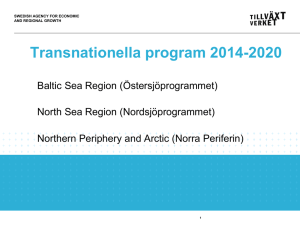
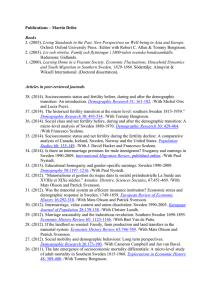
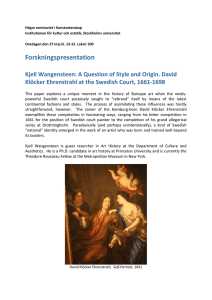
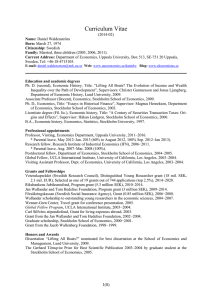
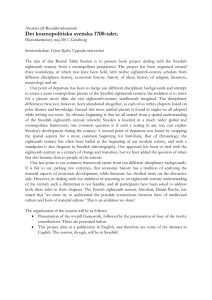
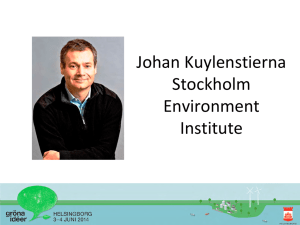
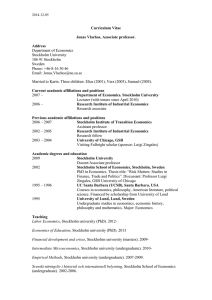
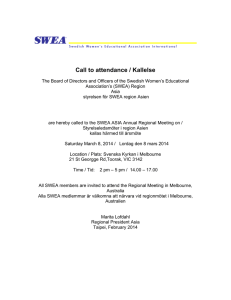
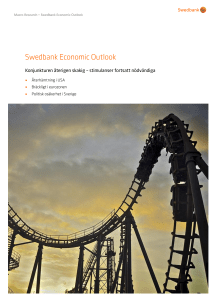
![[melin & österlin] melbi, johan (red.): John Melin](http://s2.studylib.net/store/data/005227823_1-a7a25ac6ea8f5ecd92a2b596ead60770-300x300.png)
